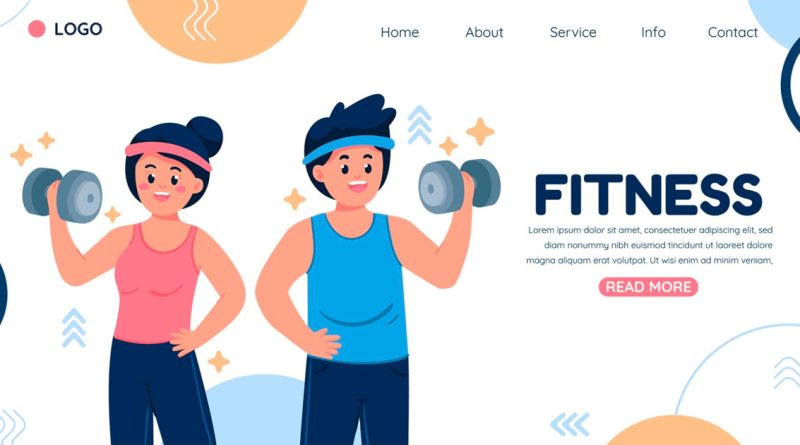Health and Fitness: A Beginner’s Guide
Starting a program to get in better shape is an exciting and daunting prospect. If you are new to making healthy lifestyle changes, here is a beginner’s guide to get you started:
Focus on What Matters Most: Weight loss, muscle gain, improved cardiovascular endurance, or just generalized healthier lifestyle changes are all valid health and fitness objectives to set. Your objectives should be SMART, meaning they are clear, quantifiable, attainable, relevant, and have a deadline.
Before beginning a new exercise program or making major changes to your diet, it’s a good idea to talk to your doctor or a certified fitness instructor to make sure your goals are reasonable and safe given your current health status, medical history, and other factors.
Form Good Eating Routines: Aim for a varied diet high in nutrient-dense foods, including fresh produce, lean meats, whole grains, and healthy fats. Maintain a healthy diet by consuming moderate portions of balanced meals and limiting processed foods, sugary snacks, and bad fats.
To maintain optimal biological processes, it is important to drink sufficient water throughout the day. Aim for 8–10 glasses of water a day, and modify your consumption according to things like your activity level, the weather, and your specific hydration requirements.
Maintain a Regular Exercise Routine: To enhance your cardiovascular health, strength, flexibility, and general fitness, maintain a regular exercise regimen. Get in shape by doing what you love, whether that’s jogging, swimming, cycling, strength training, yoga, or joining a group fitness class. Get in a modest amount of exercise at first, and then work your way up to more intense and longer sessions.
Make a Schedule: Make a schedule for your workouts that incorporates cardio, weight training, flexibility exercises, and recovery days. To stay consistent and achieve your fitness objectives, make exercise a part of your weekly schedule and set a specific time for it.
Pay Attention to Your Body: Read your body’s cues and change your diet and exercise routines appropriately. To avoid overtraining and injuries, reduce or adjust your exercise routine if you feel tired, sore, or otherwise unwell while exercising. Give your body the time it needs to recover by getting enough sleep and putting recovery first.
Make Sleep a Priority: For optimal health and well-being, it is recommended to aim for seven to nine hours of quality sleep per night. Make sure you have a wind-down before bed, stick to a regular sleep schedule, and make sure your bedroom is quiet and comfortable so you can get a good night’s rest.
Take Control of Your Stress Levels: If you want to feel better mentally and emotionally, try some stress management practices like yoga, deep breathing exercises, meditation, or mindfulness. To keep your life balanced and resilient, it’s important to find healthy strategies to manage stress and to prioritize self-care.
Record your exercises, log your food consumption, and note any changes in your energy levels, body composition, or general health as you work towards your fitness and health objectives. Keep yourself motivated and on track by celebrating small victories and major milestones as you go.
It takes time, effort, and persistence to reach your fitness and health goals, so be patient and consistent. Maintain a steady pace of work, keep your sights set squarely on your objectives, and wholeheartedly embrace the idea of constant development. On your journey to a better, happier you, remember to be gentle with yourself and to rejoice in the little things.
You may set yourself up for success and wellness in the long run by following these rules and taking a comprehensive approach to health and exercise. In your pursuit of personal excellence, maintain a firm resolve, have an open mind, and savor the ride.




